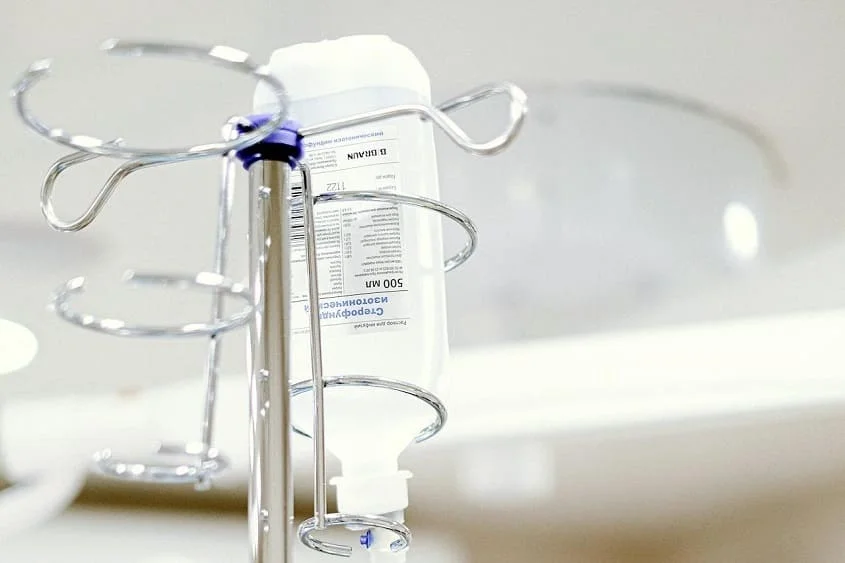What Is IV Therapy?
- Updated on: Jul 9, 2025
- 2 min Read
- Published on Jul 9, 2025

IV (intravenous) therapy is a way of delivering fluids, medication or nutrients directly into the bloodstream. This allows for fast absorption for treating a range of conditions. IV therapy is used within hospitals, while also being used as a form of holistic treatment.
What Does IV Therapy Involve?
The process of IV therapy involves inserting a catheter into the vein – usually in the arm – and then administering a substance directly into the bloodstream. Common substances used within IV therapy include:
- Medications
- Fluids
- Electrolytes
- Vitamins
While you may feel a small pinch as the catheter goes in, IV therapy is generally not too painful and it is completely safe provided substances are carefully measured and administered by a qualified professional.
The process of IV therapy can take several minutes to several hours depending on the type of treatment.
Uses of IV Therapy
IV therapy has a few common uses. These include:
Cancer Treatment
Chemotherapy is a form of IV therapy used to treat cancer that involves injecting cytotoxic drugs into the bloodstream. These drugs help kill cancer cells around the body.
Blood Pressure Regulation
If a person is experiencing severe hypertension (high blood pressure), drugs like beta blockers and vasodilators may be administered intravenously to help regulate blood pressure to a healthy level.
Blood Sugar Regulation
IV therapy can also be used to inject insulin into the bloodstream in emergency diabetes-related situations such as hyperglycemia. Fluids and nutrients may also be used in these cases.
Pain Management
Heavy duty painkillers like morphine are often administered via IV therapy. This could be important during instances like surgery in which oral painkillers are not strong enough.
Dehydration
If you are dehydrated, IV therapy can be used to quickly administer fluids and electrolytes for quick rehydration. This is sometimes used as a fast hangover remedy or as a way of recovering from conditions like diarrhoea. IV therapy can also be used for rehydration following surgery.
Fatigue
A concierge doctor may be able to treat fatigue by using IV therapy. Fluids, vitamins and electrolytes can help restore energy levels for those dealing with exhaustion due to stress, insomnia or illness.
Nutrient Deficiencies
IV therapy can also be used to treat various nutrient deficiencies. This includes the likes of Vitamin B12 deficiency and malnutrition caused by conditions like Crohn’s disease and celiac.
Immunity Boosting
Injecting vitamins directly into the bloodstream may also help to boost the immune system, although there is limited scientific evidence as to how effective this is.
Should I Consider IV Therapy?
Whether you should get IV therapy depends on your health needs and circumstances.
There are times when it can be a medical necessity – as in the case of many medical emergencies and serious conditions. Oral treatments may not be available and IV therapy may be the best course of action.
In other instances, like hangovers or experiencing a cold, IV therapy can be considered – even if it is not necessary. It is important to weigh up the cost and any potential risks to determine whether it is worthwhile.












